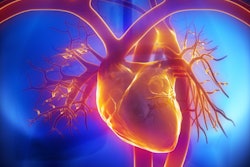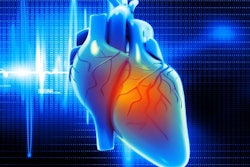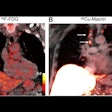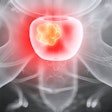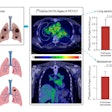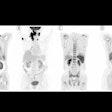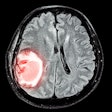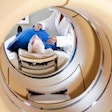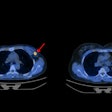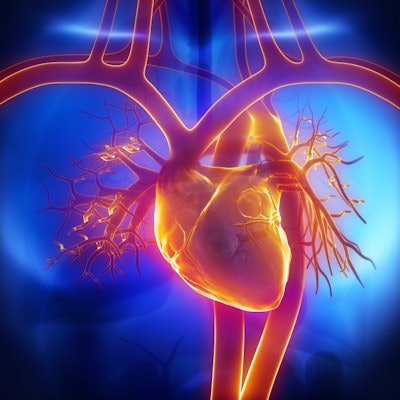
Overall usage of standard myocardial perfusion imaging (MPI) exams has declined, but cardiologists are performing a higher share of these studies, according to research published in the August issue of the Journal of the American College of Radiology.
What's more, PET MPI utilization is growing in cardiology private offices. The problem is self-referral, according to a team led by Dr. Sarah Kamel of Thomas Jefferson University Hospital in Philadelphia.
Kamel's team sought to evaluate recent trends in the use of elective standard MPI among Medicare beneficiaries but also evaluated recent trends in the use of PET MPI, which is considered superior to standard MPI (JACR, August 2019, Vol. 16:8, pp. 1013-1017).
The study included information from Medicare's Part B fee-for-service databases between 2004 and 2016. The team selected Current Procedural Terminology (CPT) codes for MPI -- planar, SPECT, or PET -- then calculated utilization rates per 1,000 Medicare beneficiaries. Next, the authors identified elective exams using place-of-service codes for private offices and hospital outpatient departments (HOPDs), and identified performing providers using specialty codes.
The group found that although elective standard MPI use by all providers peaked in 2006, at 74 studies per 1,000 beneficiaries, it declined by 36% by 2016, to 45.5 studies per 1,000 beneficiaries. However, its utilization by cardiologists continued to grow.
| Standard MPI use by provider between 2004 and 2016 | ||
| MPI provider | 2004 | 2016 |
| Cardiologists | 79% | 87% |
| Radiologists | 21% | 13% |
The use of standard MPI by all providers has decreased over the past number of years -- in part because of the reimbursement cuts mandated by the Deficit Reduction Act of 2005 and implemented between 2006 and 2008. However, more of these exams are being performed now by cardiologists rather than by radiologists.
"If utilization in private cardiology offices had all been appropriate, one would expect that with a drop in that private office use, there would have been a concomitant rise in the use of these procedures by cardiologists in HOPDs, but that did not occur," the authors wrote. "This trend raises the concern that many of the standard MPI studies performed in 2008 and prior years by cardiologists were inappropriate."
As for PET MPI, the team had data from 2005 -- the first year CPT codes for the procedure were used. Cardiologists also showed an overall upward trend in elective PET MPI use, from 0.2 studies per 1,000 beneficiaries in 2005 to 2.6 per 1,000 beneficiaries in 2016; that year, cardiologists performed 93% of all elective PET MPI exams, 84% of which were done in private offices.
"Although it is promising to see a decline in performance of [standard] MPI in private offices, the recent rapid increase in use of PET MPI, a much more costly procedure, in cardiology offices is of some concern," the authors wrote.






